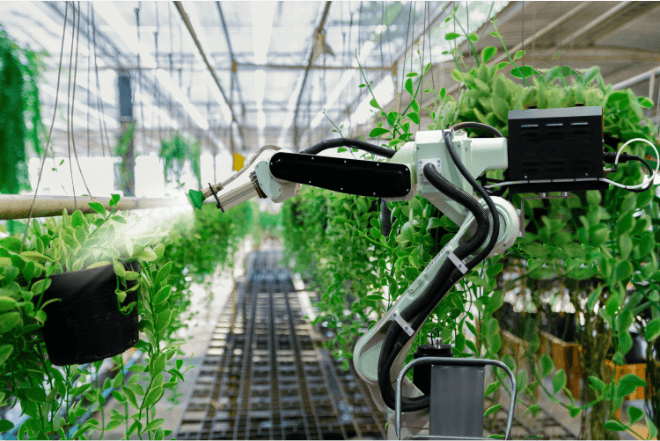
If you have seen the Terminator movies, you have probably wondered whether your smart refrigerator will one day become self-aware and plot a world takeover with other artificial intelligence-powered tech.
But Ayesha Khanna, co-founder and CEO of artificial intelligence solutions firm ADDO AI, does not see AI that way. Instead, she sees the possibilities in applying AI to make people’s lives better, particularly in building smart cities that are people-focused in terms of giving everyone access to basic services and goods. “More than anything else, AI has the potential to democratize access and make growth inclusive,” she said in her keynote during the Southeast Asia Development Symposium 2021 organized by the Asian Development Bank in March.
Countries need to make sure their cities are livable since each second, five people join the ranks of the middle class, most of them through migration to cities, said Khanna. “When they come to cities they expect good healthcare, good education, good security, and definitely food security.”
Here are examples of how AI is already making that happen.
AI for food security
By 2050, 10 billion people will live in cities and 80% of all food in the world will be consumed in cities. Enter AI-powered vertical farms and greenhouses. AI can help growers monitor and water the crops for maximum production.
In future smart cities in the People’s Republic of China, Khanna said residents would be able to just walk over to their local high-tech greenhouse to buy fresh vegetables instead of going to a grocery store.
One company that is making a go in the vertical farming space is US company Bowery, which recently announced a new $300-million round of funding, a sign the business model is viable. Bowery grows pesticide-free leafy greens in a warehouse in New Jersey. Around 850 stores now stock its produce.
AI for education
Online learning has saved the day for students who could not go to actual classrooms in the wake of the coronavirus disease (COVID-19) pandemic, Khanna noted. These platforms will become more engaging going forward, she said.
She cited online education platform Coursera, which is using AI to better engage students in seminar-style online group settings. The AI answers basic questions from students, and then the lecturer can engage with students doing group work, giving them personalized attention lacking in a virtual classroom.
This “man–machine partnership in education” though will need to piggyback on a strong telecommunications infrastructure, she pointed out.
AI for healthcare
Healthcare is another field already being transformed by AI. “How can artificial intelligence help design a future for a city that gives you the best breed of medical advice but in a more accessible manner?,” asked Khanna.
Answer: Butterfly iQ. This handheld ultrasound device is already available and yes it is powered by AI. The technology basically turns smartphones into an ultrasound.
Khanna likes its versatility as a patient would not always need to commute to a hospital to get an ultrasound.
She noted though that many AI-powered technologies would need fast internet, because of the huge amounts of data being exchanged from point to point. “When you want interactive platforms, when you want video that goes over high speed, when you want education that's immersive, you need a more powerful telecommunications infrastructure.”
AI for security
In any city, safety is important, especially in the post-COVID-19 world, said Khanna.
This entails using facial recognition systems and installing smart systems that allow for contactless ways to operate elevators and doors.
Developers of office buildings in Tokyo are also making sure surfaces that visitors are likely to touch will be treated with antimicrobial coatings, which can protect people against disease-causing microorganisms. Ventilation systems will also be redesigned to address COVID-19 risks.
Addressing dangers
While Khanna is a firm advocate of AI, she also realized there are dangers as British physicist Stephen Hawking had flagged years ago.
Khanna cautioned, “In a world of AI-powered services we need to trust that our government and our companies are keeping our data private and secure.”
She lauded Singapore for taking measures to regulate the AI space, including setting up an advisory council on ethics. “All technologies are a double-edged sword. They can do great things but they can also manipulate people. They can also cause harm,” she said.
“We want to take advantage of all these but we also want to mitigate the downside through analysis of the way data is used through data governance, AI governance through education, and making sure that citizens are aware that the government is handling all these in a responsible and transparent manner.”

